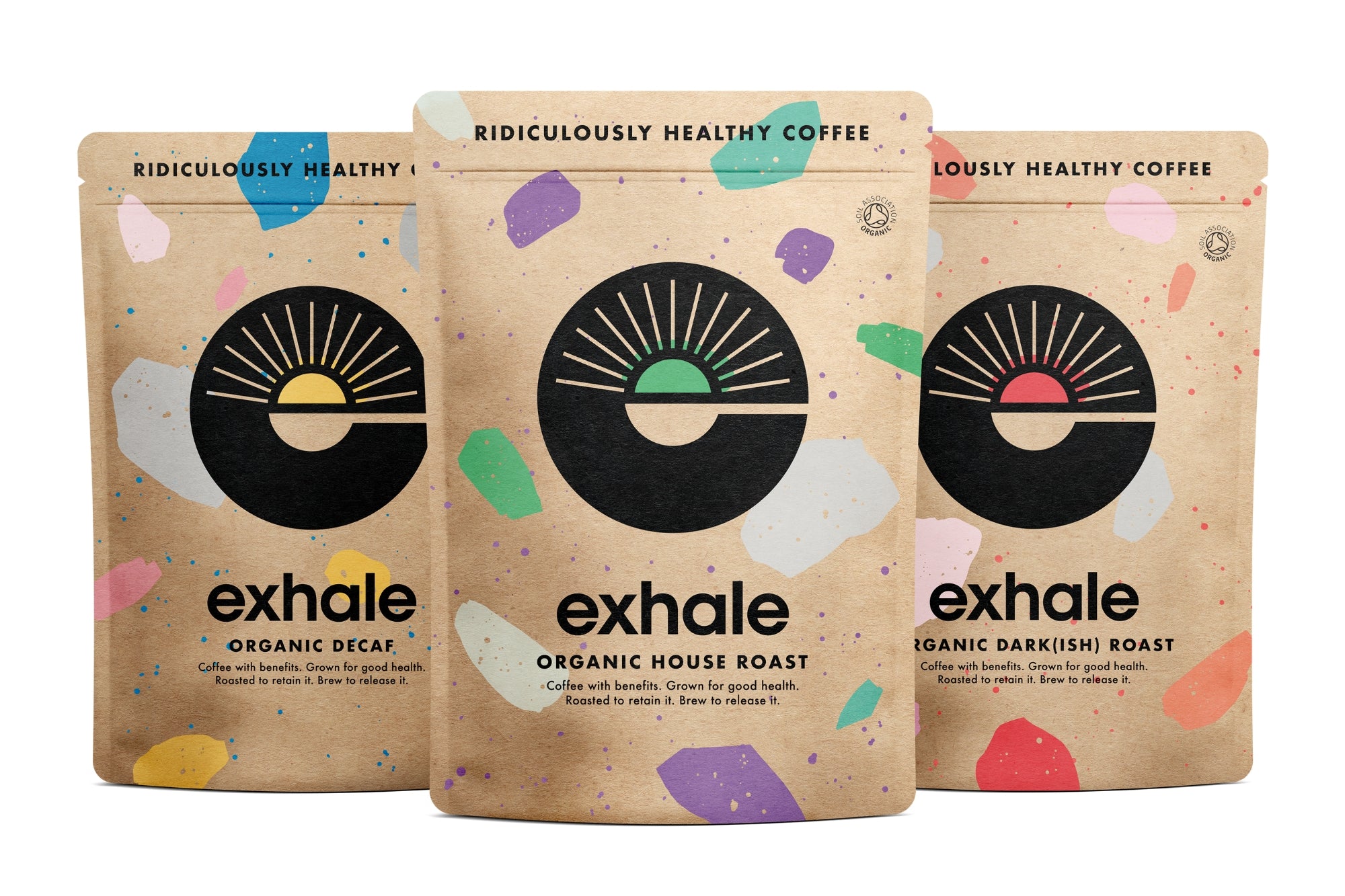What foods are high in antioxidants? Your guide to the top antioxidant-rich foods including blueberries, coffee and chocolate.
Raise your hand if you’ve tried an acai bowl before. Keep your hand up if it was because you’d heard acai berries are “antioxidant-rich”. Ok now keep it up if you can tell us what an antioxidant is. Chances are your hand came down on that last one!
It may be everyone’s favourite foodie buzzword, but many of us don’t actually know what an antioxidant is.
What Are Antioxidants, Exactly?
Antioxidants are molecules that neutralise free radicals, which are unstable molecules that can harm your cells. More on this below.
Your body generates its own antioxidants, and they also occur in food. These dietary antioxidants include well-known favourites like vitamin C, as well as vitamins E and A. But they also include other less-known compounds such as plant based phytochemicals (like our beloved polyphenols); and even caffeine has antioxidant effects!
But what exactly does an antioxidant do?
So, their job is to protect our cells from damage caused by oxidants known as free-radicals. Free-radicals are produced by the body to defend itself against unwanted invaders such as bacteria and viruses.
So far so friendly, so why are the Exhale guys demonising these poor free radicals, you ask?
Well, sometimes free-radicals get a bit excited and too many of them accumulate, and when this happens, they begin attacking the healthy cells in our bodies. This can cause something known as oxidative stress. Prolonged oxidative stress (aka chronic oxidative stress) puts us at risk of serious health issues such as cancer, type 2 diabetes and heart disease.
So, the job of an antioxidant is to disarm these oxidants and remove them from the bloodstream. Call them the free radical party police.
With increasingly hectic lifestyles, poor diets and spiralling pollution, we are, more than ever, exposed to numerous external oxidants. And while our bodies do have their own antioxidant defences, they could do with a little help. Thankfully then, antioxidants are also found in food. So without further ado…
Here are the top 7 healthy foods that are high in antioxidants.
7 Foods that are high in antioxidants:
Image: Blueberries seen in their natural, plastic-free environment.
1. Blueberries
Ahh the blueberry. Everybody’s favourite super food. A wholly justified title seeing as several studies suggest that blueberries contain the highest amount of antioxidants among all fruits and vegetables(1). They are rich in anthocyanins and other antioxidants that are thought to help reduce the risk of heart disease (2) and maintain brain function (3).
2. Pecans
The mighty pecan is rich in minerals, healthy fats and yep you guessed it, antioxidants. They may also help raise blood antioxidant levels and lower bad cholesterol. A study published in 2011 reported that people who ate pecans experienced a 26–33% drop in oxidised blood LDL levels within two to eight hours. Why is that a good thing? High levels of oxidised LDL cholesterol in the blood is a risk factor for heart disease(4).

Image: The coffee fruit as it ripens, bursting with fruity goodness.
3. Coffee
Coffee lovers, this one's for you. Multiple studies show that coffee is the single biggest source of antioxidants in the Western diet, contributing up to 66% of your total dietary intake (5, 6). Impressive stuff right? This seems like a pretty good opportunity to mention that Exhale coffee is sourced and roasted to provide more than any other! So much so that 1 cup independently tested to have the same antioxidant power as 12 punnets of blueberries or 55 oranges! In one single, brewed cup of coffee. Mind officially blown.
4. Dark chocolate
The good news doesn't stop there! Not only is dark chocolate delicious, but it’s also one of the best sources of antioxidants. Generally speaking, the higher the cocoa content, the more antioxidants the chocolate contains. Meaning that Dairy Milk bar won’t cut the mustard here. The antioxidants found in dark chocolate have been linked to reduced inflammation(7) and risk of high blood pressure(8).
5. Red cabbage
First thing’s first, let’s just acknowledge that ‘red cabbage’ is actually purple shall we!? The ‘red’ cabbage is rich in vitamins A, C and K, and has a high antioxidant content. The high levels of antioxidants include anthocyanins (also found in strawberries and raspberries), a group of antioxidants that give red fruits and veggies their colour. These anthocyanins have been linked to several health benefits including a reduced risk of certain cancers(9).

Image: Voluptuous, antioxidant-rich strawberries.
6. Strawberries
Did you already guess this one from the above? This vibrant and tasty fruit is rich in antioxidants such as vitamin C and the aforementioned anthocyanins, which not only have those cancer fighting properties but have also been reported to reduce inflammation and decrease blood pressure (10).
7. Artichokes
Artichokes are one of those slightly mysterious vegetables that make any meal feel fancy. Along with their airs and graces, artichokes are rich in lots of nutrients and antioxidants, containing significant levels of vitamin C, folic acid, potassium and fibre. A fun fact for you, the way you prepare your artichoke makes a difference to the antioxidant levels (11). Steaming increases the effectiveness of the antioxidants by 15 times while boiling increases it eightfold.
The Bottom Line
Eating a diet rich in antioxidants can help fight oxidative stress and reduce the risk of many diseases, including heart disease and certain cancers. By eating a wide variety of the foods in this blog, you can boost your blood levels of antioxidants and enjoy their many health benefits.
Exhale Healthy Coffee is the first organic coffee in the UK to be sourced and roasted to support your health and wellness, as well as your performance. With the equivalent of 12 punnets of blueberries worth of antioxidants in one single cup, why not give it a try today.
Citations
- https://pubs.acs.org/doi/abs/10.1021/jf801381y
- https://pubmed.ncbi.nlm.nih.gov/23319811/
- https://www.ncbi.nlm.nih.gov/pmc/articles/PMC2850944/
- https://academic.oup.com/jn/article/141/1/56/4630660?login=false
- https://pubmed.ncbi.nlm.nih.gov/14988447/
- https://pubmed.ncbi.nlm.nih.gov/14506489/
- https://faseb.onlinelibrary.wiley.com/doi/10.1096/fasebj.2018.32.1_supplement.755.1
- https://academic.oup.com/ajh/article/23/1/97/150091
- https://pubmed.ncbi.nlm.nih.gov/22129334/
- https://www.mdpi.com/2072-6643/11/7/1510/htm
- https://pubmed.ncbi.nlm.nih.gov/18759447/






Leave a comment
All comments are moderated before being published.
This site is protected by hCaptcha and the hCaptcha Privacy Policy and Terms of Service apply.